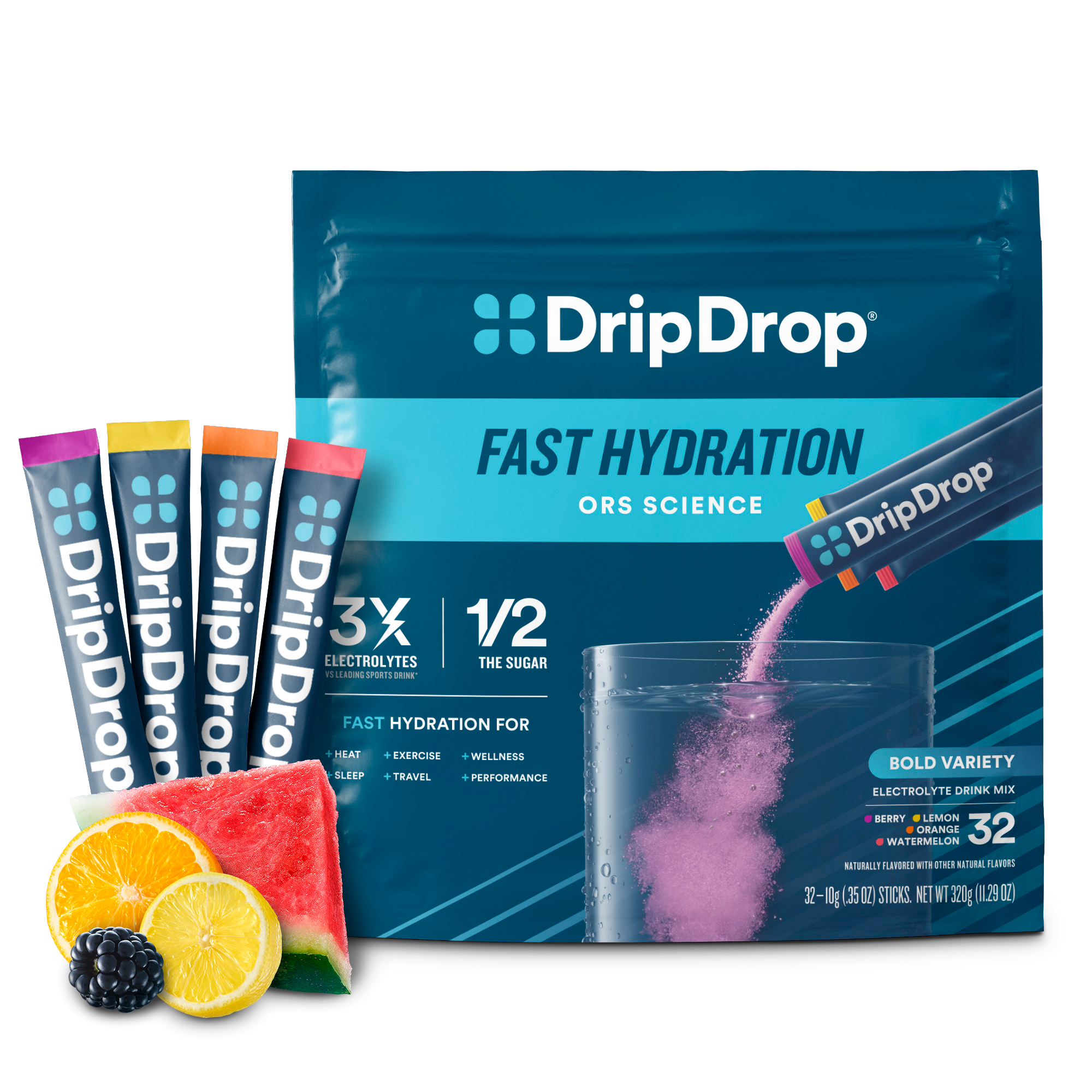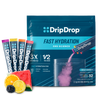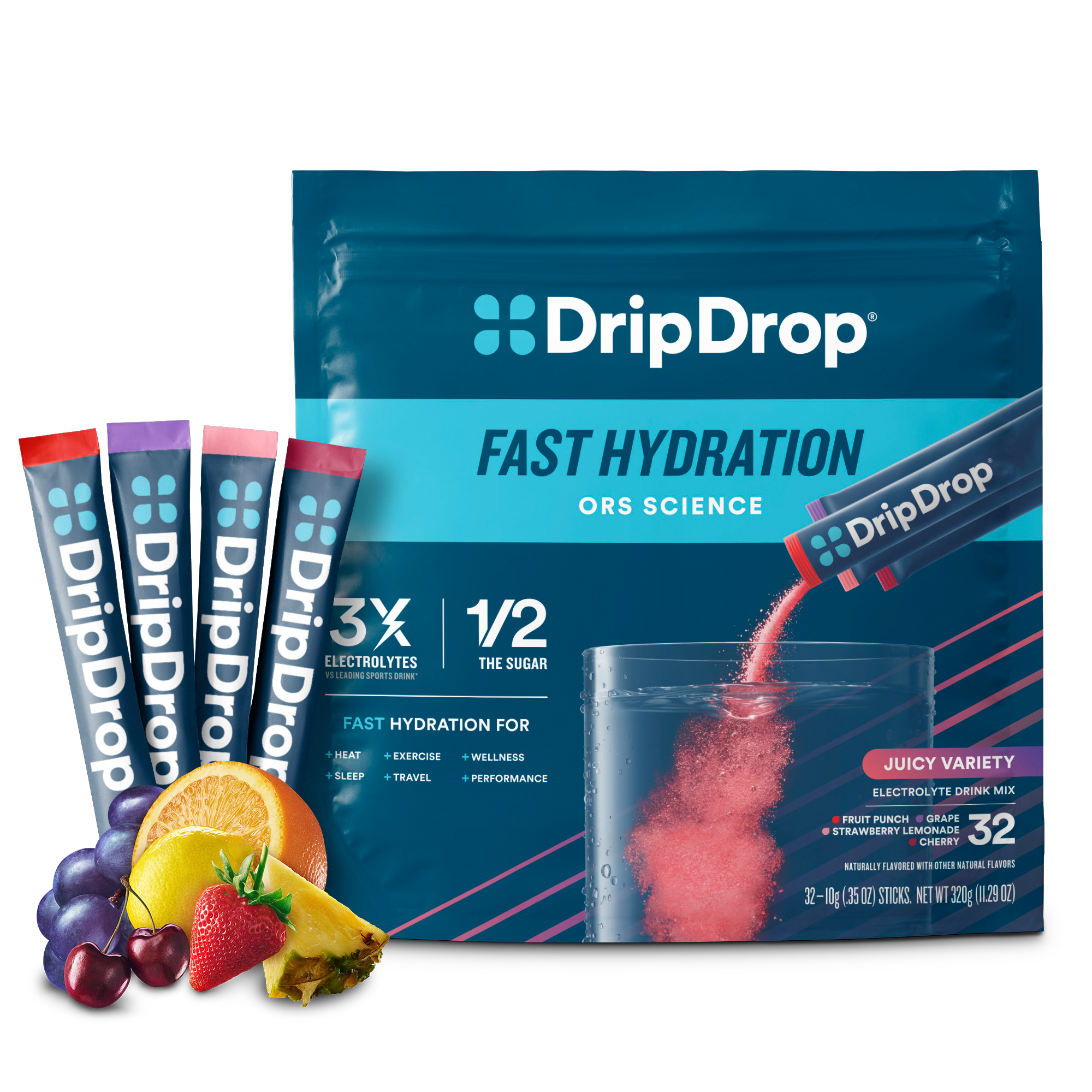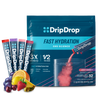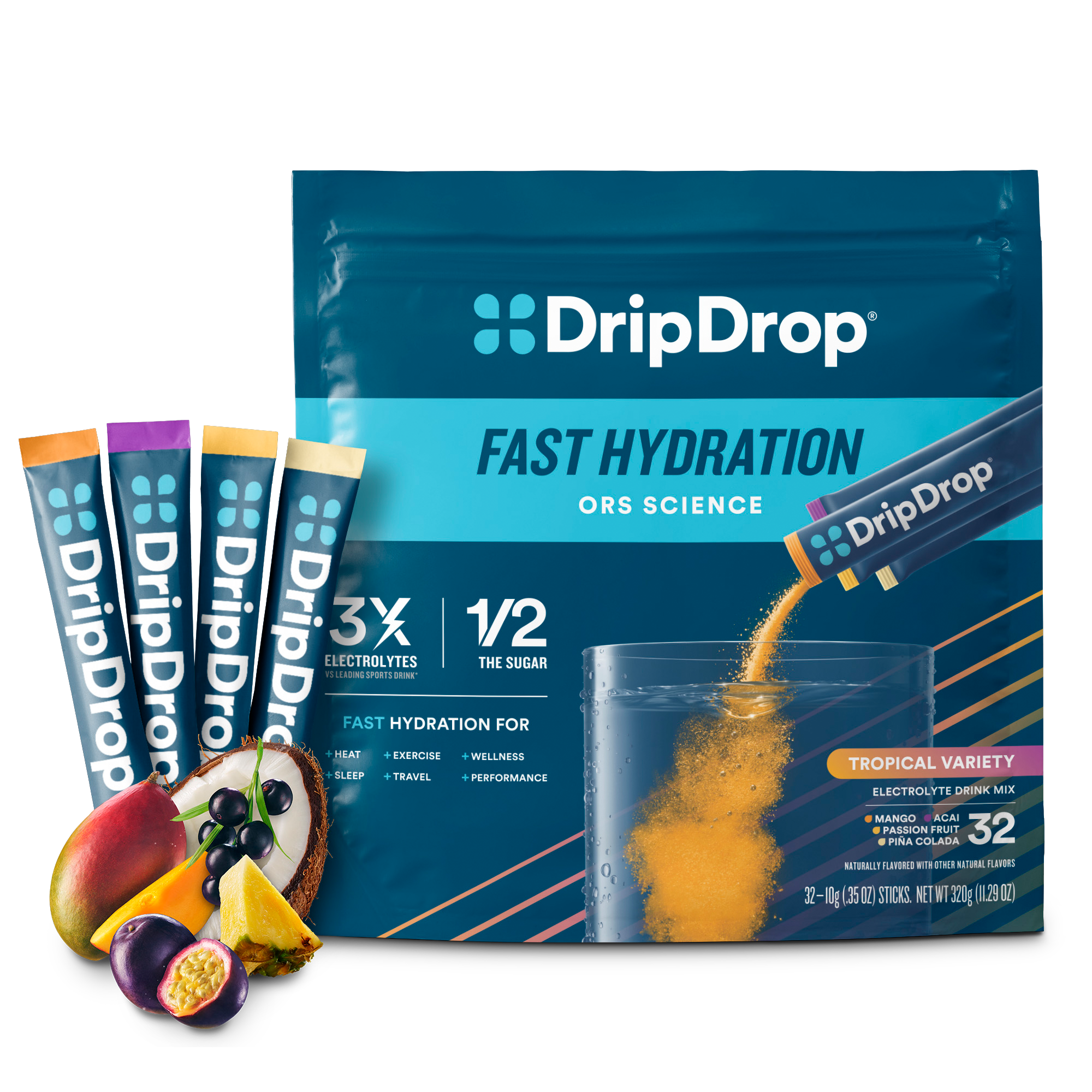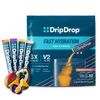Dehydration is an issue millions of Americans face daily. But some people are more susceptible to dehydration than others, including the elderly, children, and people with certain illnesses or on particular medications.
Research shows that adults older than 60 have a greater risk of becoming dehydrated, leading to serious conditions. Dehydrated seniors are at a higher risk for infectious disease, kidney stones, stroke, chronic constipation, and impaired cognitive function.
Mild to moderate dehydration can be overcome through replenishing fluids and electrolytes. But recognizing the symptoms of dehydration in elderly adults is essential to prevent cases from becoming more severe and requiring medical attention.
DripDrop is a doctor-developed electrolyte drink mix with a precise formula designed to hydrate you fast. Packed with vital electrolytes and delicious flavor, DripDrop initiates a hydration shortcut, allowing your body to absorb fluids and electrolytes quicker.
Drinking the daily recommended amount of water and adding DripDrop to your routine can help boost fluid and electrolyte intake. To prevent dehydration in elderly adults, learn common symptoms, age-related factors, and how to prevent dehydration.
Why Are Seniors More Likely to Be Dehydrated?
Many factors contribute to the higher risk of dehydration in elderly adults. As we age, our bodies experience many changes that can make us more susceptible to dehydration.
Dehydration occurs when we lose more water and electrolytes than we have taken in. Our bodies lose water through sweating, urination, bowel movements, and breathing.
Decrease in Water Retention
As the human body ages, the amount of water that it can store decreases. Older adults retain less water in their body. Thus, any fluid loss will have a larger impact on a senior body’s fluid balance.
Dulled Thirst Response
Thirst is typically the first sign of dehydration, giving the sensation of dry mouth. This symptom alerts your body that it’s time to replenish vital fluids and electrolytes. However, research shows thirst response diminishes as we age. When seniors are dehydrated, they are less likely to feel thirsty, thus less likely to drink enough water to properly replenish fluid loss. Without this early indicator of dehydration, it’s much more important to monitor other symptoms of dehydration in the elderly to prevent dehydration from becoming more severe.
Reduced Kidney Function
Your kidneys play a vital role in eliminating waste and excess water from your body. As we age, our kidney function slowly declines, which can impact how our bodies balance fluids. For individuals with kidney disease, the risk of dehydration is even greater because of the potential for waste buildup that damages the kidneys and a lowered ability to regulate the body’s fluids.
Additional Risk Groups
In addition to decreased water retention, thirst response, and kidney function, there are additional factors that put seniors at a greater risk for dehydration.
-
Individuals older than 85 years old
-
Senior women
-
Senior patients suffering from five or more chronic diseases and health conditions
-
Seniors who take five or more medications
-
Alzheimer’s patients
Recognizing Symptoms of Dehydration in Elderly Adults
The aging process can make it more difficult to recognize dehydration symptoms in elderly adults. Over time, our bodies become less efficient at recognizing thirst, retaining water, and regulating fluid levels, putting seniors at an additional risk of dehydration, which can lead to both physical and psychological symptoms.
Physical Symptoms of Dehydration
-
Dry mouth
-
Dark-colored urine
-
Not urinating frequently
-
Poor skin elasticity
These physical symptoms of dehydration can be observed by the older adults themselves as well as their caretakers.
Watching out for these indicators is a great way of monitoring an older adult’s hydration status and knowing when they need to drink more water.
Psychological Symptoms of Dehydration
-
Feeling dizzy or lightheaded
-
Headaches
-
Fatigue
-
Dizziness
-
Weakness
Unlike physical symptoms, psychological symptoms of dehydration in elderly adults can be more difficult to spot. However, being more mindful of these symptoms can catch dehydration early and help seniors boost their hydration. Awareness of symptoms is especially helpful because of seniors’ decreased thirst response, which is typically our first indicator of dehydration.
Symptoms of Severe Dehydration
-
Sunken eyes
-
Bloody or black stool
-
Rapid heartbeat and breathing
-
Unexplained tiredness
-
Diarrhea or vomiting that lasts longer than 24 hours
-
Feeling disoriented
-
Inability to keep fluids down
Severe dehydration is a dangerous and possibly fatal condition. Not only does severe dehydration progress quickly, it requires medical advice and treatment. If you notice any signs of severe dehydration from an older adult, it is imperative they receive medical attention immediately.
Promoting Hydration in Elderly Adults
Although older adults are more vulnerable to dehydration, understanding the physical and psychological symptoms of dehydration in elderly populations can help prevent dehydration. Once you can spot these common symptoms, it’s essential to learn the best way to replenish lost fluids and electrolytes.
Proper hydration starts with drinking enough fluids, though we do receive some fluids from hydration fruits and vegetables. However, these foods should not be a main source of hydration. Water and other hydrating beverages like coconut water, and herbal teas can help boost hydration, but your body also needs electrolytes to function properly.
DripDrop is a fast way to hydrate because its precise formula uses a hydration shortcut that allows your body to absorb fluid and electrolytes more quickly. DripDrop comes in compact, portable pouches that can easily be carried with you for a fast-hydrating solution. It also includes vital electrolytes such as magnesium, zinc, and vitamin C.
A common benchmark for daily water intake is to drink eight 8-ounce glasses, but seniors should try to drink even more water because they are at a high risk or dehydration and may not retain the water as well. The National Council on Aging recommends men older than 51 drink 13 cups of water per day and women over 51 drink 9 cups per day; one cup is equivalent to 8 ounces.
Tips to Help Seniors Stay Hydrated
-
Add flavor to your water such as lemon or cucumber slices
-
Set reminders to drink water throughout the day
-
Eat fruits and vegetables with high water content
-
Drink water with every meal
-
Avoid sugary drinks, alcohol, and coffee which can have a diuretic effect
-
Drink water with an electrolyte drink mix like DripDrop
-
Drink small amounts of water all day long
-
Avoid extended periods of time outside in the heat
Stay Hydrated with DripDrop
Drinking electrolyte-enhanced water is designed to rehydrate you fast. Designed with the precise ratio of electrolytes and essential minerals your body needs, DripDrop has half the sugar found in traditional sports drinks and three times the electrolytes.
DripDrop is available in a variety of delicious flavors as well as a zero-sugar option. DripDrop Zero has all the same fast-hydrating impact without sugar. Try a multi-flavor variety pack to discover your favorite new way to hydrate!



